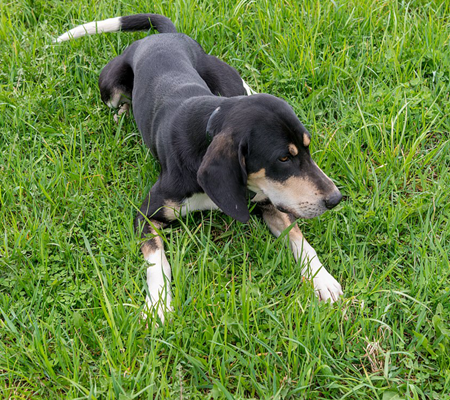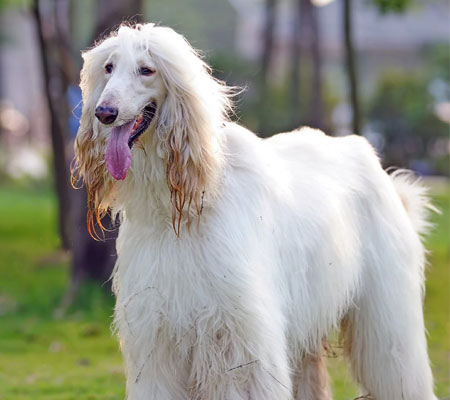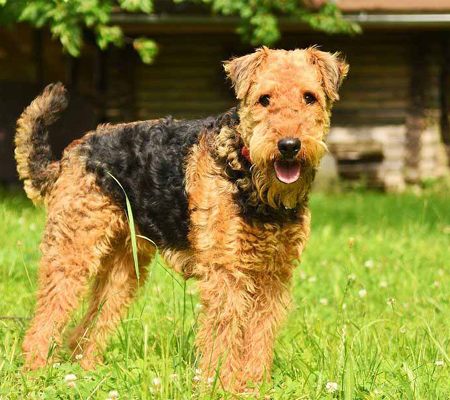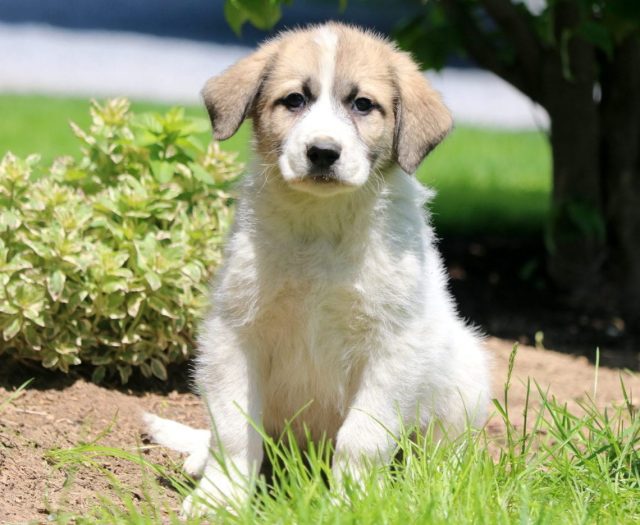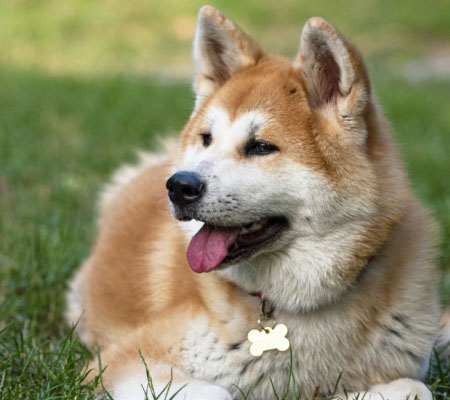The Anglo-Français de Petite Vénerie, like many
other French scent hounds, is a long-lived breed with a long history. It is the
result of mixing older Anglo-French hounds with the Poitevin, Beagle, Petite
Gascon-Saintongeois, and Petite blue de Gascogne, resulting in hounds with the
body of English foxhounds and the head of a French scent hound. They've been
employed for ages, mostly in groups and principally to chase down small animals
during hunting, and many of their personality traits stem from this activity.
While they are almost exclusively employed as hunting dogs in France, they have
only just began to gain popularity in the United Kingdom, the United States,
and Italy as show and companion dogs.
Their pack mentality has not left them, as they
are gregarious, friendly, and non-aggressive with humans, even strangers, and
have been known to be gentle with youngsters, even if reared as only dogs. They
are devoted and loyal to their family, especially the owner who trains and
socialises them. Their long-standing intellect, strong will, somewhat
independent personality, and good noses, like those of many other scent hounds,
can make them stubborn, making the early phases of training more ideal for an
experienced owner.
They're also prone to baying because they've been
taught to do so to notify their owners, which may be a problem in compact
living quarters like an apartment. Their hunting history also restricts their
capacity to coexist with tiny non-canine creatures, since their prey drive can
take control at any time. Despite their few flaws, they are a well-mannered
breed that is gradually transitioning from a traditional hunting dog to a
delightful family companion.
Anglo-Français de Petite Vénerie Highlights
Breed Size
Medium
Nature
Friendly, Outgoing, Playful, Protecative
Energy Level
Active
Intelligence
High
Barking Level
When Necessary
Coat Length
Short
Breed Group
Hound
Droll Amount
Low
Good with
Familes, Children, Dog
Feed Level
Medium, High
Colour Type
white, black and bright tan; white, black and pale tan; white and orange.
Other Facts
Lively, social, and friendly dogs
Dog History
There are ties to the 16th century, like with
many other French scent hounds, but because genuine documentation was few, it's
impossible to pinpoint the breed's actual roots. St. Hubert's Hounds
(Bloodhound), one of the first known purposeful breeding programmes started
between 750 and 900 A.D., has been linked to this and many other related
breeds. Hunting dogs, primarily scent hounds, were eventually crossbred to
establish the early basis of Anglo-French breeds, despite being maintained in
packs almost exclusively by French and English royalty. Crossing ancient
Anglo-French hounds with Poitevin, Beagle, Petite Gascon-Saintongeois, and
Petite blue de Gascogne resulted in the Anglo-Français de Petite Vénerie we
know today.
It has remained a popular hunting dog in France
throughout history, although it has only lately gained popularity outside of
its homeland. It has been noted in Spain, where it is employed as a hunting
dog, as well as the United Kingdom and the United States, where they are more
popular as companion dogs, although they are still uncommon in those countries.
More information about their non-working temperaments has been established as
they've been introduced into family environments, and they've received high
marks in the process, as they've so far proven to be similar to many other
French scent hounds: social, affectionate, intelligent, generally non-aggressive,
and ultimately loyal
Despite bad translation, their name is eventually
being more commonly recognised to signify that they are not always
"tiny" dogs, but rather little game hunters.
18-22 inch 18-25 kg 13-15 year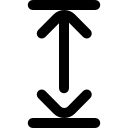
Height

Weight

Life Span
Health and Care
There are no diseases that the Anglo-Francais de
Petite Venerie is prone to. Because the dog was almost solely bred to be a
working dog, any potential genetic flaws would have harmed the dog's ability to
perform its duties and therefore been removed from the gene pool.
However, because this scent hound is a
cross-breed between two well-known breeds, it is possible that it will develop
health issues that are common in closely related breeds. Hip and elbow
dysplasia, demodectic mange, and cataracts are just a few of the health
difficulties.
Dog Breed Care Tips and
Important Instructions
Raising dogs, particularly the anglo-francais de
petite venerie, is second nature to most people. Dogs were initially
domesticated between twelve thousand and twenty-five thousand years ago,
according to zoologists, and canines developed from wolves. Since then, we've
selectively produced over 400 breeds, ranging in size from four-pound tiny
poodles to Irish wolfhounds, the world's tallest dog.
Non-pedigree dogs—the one-of-a-kind dogs known as
mixed-breeds—are the most common canines. Another popular choice among dog
owners is the anglo-francais de petite venerie. Many owners, on the other hand,
are ignorant of some of the most important anglo-francais de petite venerie
care guidelines.
The annual cost of growing your anglo-francais de
petite venerie, which includes food and treats, veterinary care, toys, and a
licence, may range from $420 to $780. This does not cover the costs of
spay/neuter surgery, a collar and leash, a carrier, or a kennel. Note: Before
bringing your anglo-francais de petite venerie home for the first time, make
sure you have all of the necessary supplies.
Feeding
- Your puppy's diet should be well balanced and
full in protein, vitamins, minerals, and other nutrients to help him develop
well, regardless of his breed or weight.
- The following are the essential nutrients for
your Anglo-Français de Petite Vénerie puppy:
- Proteins are required for the growth of tissues,
organs, and muscles... They also aid in the prevention of diseases. Proteins
must be of good quality and account for more than 25% of the total ration.
- Glucids are also important for your
Anglo-Français de Petite Vénerie puppy's healthy development. They are mainly
found in cereals.
- Essential fatty acids are necessary for the
neurological and immunological systems to develop properly. Rather than carbs,
they should be used as a source of energy. Essential fatty acids are easily
digested and a good source of vitamins.
- Calcium, of course, is important for bones, as
are vitamins...
Fun Facts
The Anglo-Français de Petite Vénerie is a dog
that hunts in a pack and was traditionally employed by the French as a scenting
dog for small game. The word 'petite' means'small' in French, but it refers to
the size of the prey that the dog hunts, not the dog's height.
Home Training Tips and General
Information
The Anglo-Francais de Petite Venerie is a hunting
breed with a strong personality that was bred to work with other dogs. These
dogs thrive when given a task to do and are quite active in general. These dogs
demand a firm and steady leader, as well as significant training and
socialisation, when it comes to training. They can be self-sufficient and
quickly distracted by odours, but they are not naturally domineering or
violent. These dogs work effectively in a variety of hunting situations, but
they are not suggested as household pets.
The Anglo-Francais de Petite Venerie is a breed
that was created to hunt. These dogs demand a lot of daily activity as well as
a lot of outdoor room to run about in. These dogs should not be kept indoors
with a household.The Anglo-Français de Petite Vénerie is a very active and
lively breed. These dogs require a lot of daily activity because they were bred
to work all day. To be happy, these dogs require an active lifestyle. They
enjoy being outside and participating in activities such as chasing balls,
playing, leaping, and jogging. If you're considering of obtaining an
Anglo-Français de Petite Vénerie, make sure you have enough spare time and
energy to spend with your Anglo-Français de Petite Vénerie outside playing and
training.
Anglo-Français de Petite Vénerie Unique Name
| Male Name | Female Name |
|---|---|
| Carter | Blossom |
| Diego | Cricket |
| v | Darla |
| Ivan | Hope |
| Johnny | Inez |
| Lenny | Kiki |
| Max | Mila |
| Oliver | Sheba |
| Ollie | Tessa |
| Radar | Winnie |
| Rusty | Brie |
| Snoopy | Bugsey |
| Thor | Buzzy |
| Watson | Chaos |
| Yogi | Chessie |
| Tex | Cisco |
| Tommy | Claire |
| Turner | Coconut |
| Volvo | Kiwi |
| Wiz | Tessie |

